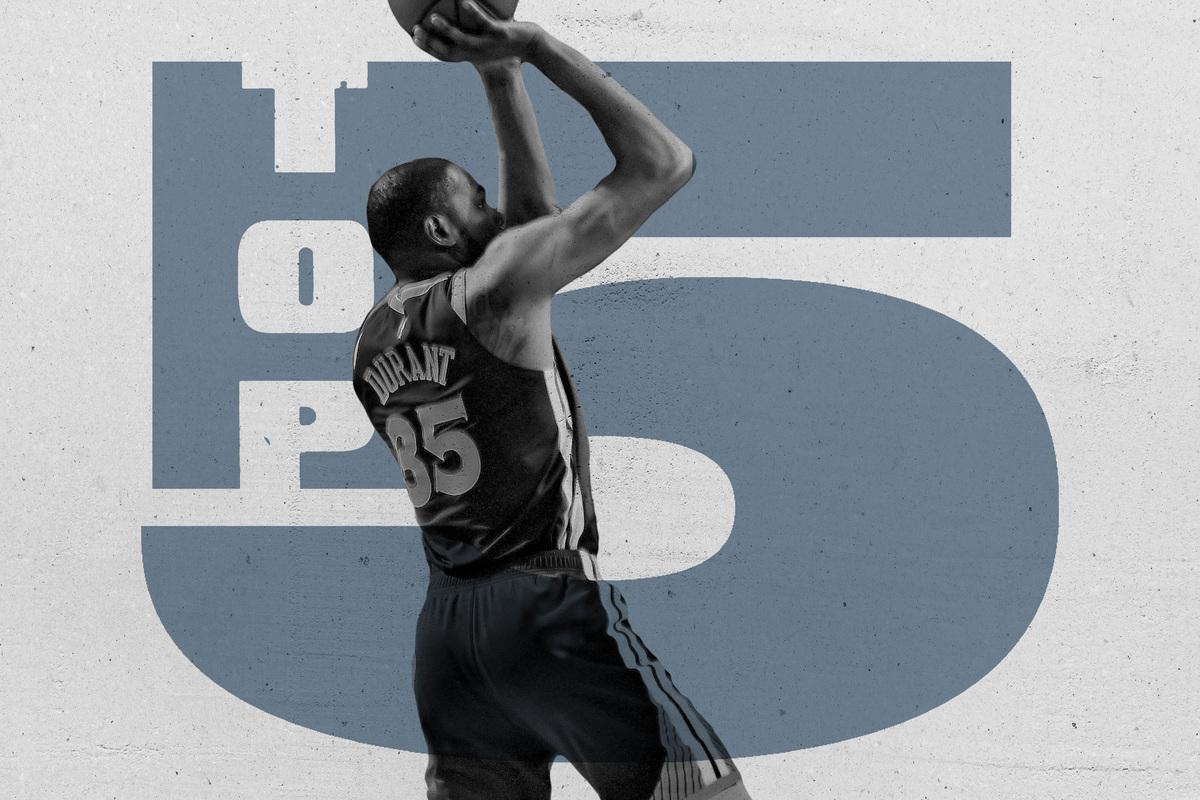
Basketball is (maybe, hopefully) on the horizon. To help reintegrate us to a life of Giannis hammer dunks, James Harden dribbling for 24 seconds, and 76ers fans yelling at you for some reason, we’re rolling out top-five rankings in 20 different categories. Most of the rankings were voted on by The Ringer staff, but each day will feature one writer’s subjective skill-based list.
The criteria for this ranking is as straightforward as you might imagine: Who are the most effective and most complete scorers in the NBA? Here are the top five choices.
5. Kawhi Leonard, Clippers
Leonard isn’t just unflappable, he’s immutable—the kind of scorer who is utterly resistant to the elements around him. Even the best individual defenders can do only so much. At some point, they will need to keep up with Kawhi step for step, stay attached as he tries to push them away, and then rise up to contest a jumper he will likely hit anyway. Other stars may reach higher scoring totals, but very few are consistent enough to carry different teams with different builds all the way through the NBA Finals.
There is a philosophical argument for Leonard to rank even higher than fifth, predicated on the idea that not all baskets are created equal. When points are toughest to come by, there may be no safer bet in the sport. And yet, Leonard doesn’t bear the same kind of creative burden as his superstar peers. So let’s just call him what he is: a very good scorer in most circumstances, and an excellent one when it matters most.
4. Stephen Curry, Warriors
Where Curry goes, junk defenses follow. You can hardly blame opposing coaches for trying; so many of the schemes and principles that have been refined over decades of basketball never took into account that a player like Curry could ever exist. Yet there he is, casually tossing up bombs until an opponent’s best laid plans have been blown to bits. None of this is new, and yet the enduring threat of Curry’s shooting forces opponents to constantly try new things—or in the case of the Raptors in the 2019 Finals, try out a middle-school coverage that was focused enough to work. Think about that: Curry is so dangerous with and without the ball that the casual disregard of his four teammates becomes a sound defensive strategy.
Elite teams will scramble to find Curry on the fast break, surrendering dunks in the process. A dribble handoff—or a play-action-style fake—with Curry involved is enough to clear a driving lane for players who otherwise wouldn’t create for themselves. It’s difficult to say whether these sorts of breakdowns even qualify as overreaction by the defense. There’s no easy way to defend a game-breaking shooter of position-defying efficiency. When forced to try, most teams err on the side of caution, proving Curry’s standing as a scorer by the lengths they’re willing to go.
3. Giannis Antetokounmpo, Bucks
Antetokounmpo’s reputation as a player goes so far beyond his scoring ability as to obscure it. Let’s start with empirical fact: Giannis has scored 43.8 points per 100 possessions this season, a mark that Michael Jordan managed only once. So many other legends never did; Larry Bird, Shaquille O’Neal, Allen Iverson, Dirk Nowitzki, Charles Barkley, Tracy McGrady, Dominique Wilkins, Karl Malone, and Dwyane Wade never scored the way that Giannis is scoring right now. LeBron James, Kevin Durant, and Stephen Curry—even in their best seasons to date—haven’t yet, either.
All of this might feel more pronounced if not for Milwaukee’s dominance. The Bucks have dispatched opponents so promptly and with such ease that Antetokounmpo seldom has to put in a full night’s work. Instead, he puts up about a point a minute for 30 minutes while his team cruises to a win by double digits. No player has ever scored so much while playing so little. Defensive rebounds work as a catapult, launching Giannis and his teammates onto the break for the easiest points possible. Pick-and-rolls set the stage for Antetokounmpo to outfox and overpower any defender who gets in his way. A steadier jump shot would be ideal (or alarming?), but hardly seems necessary when a hard dribble and a pivot can get Giannis most anywhere he needs to go.
2. Kevin Durant, Nets
Even in the case of devastating injury, Durant deserves the benefit of the doubt. His game is just too devastating and too adaptable. In a way, he’s an amalgam of the three players ranked behind him: a shooter nearly on par with Steph who is the size of Giannis and as unstoppable as Kawhi. He is a thought experiment brought to life, held back only by his Achilles tendon rupture and the complicated dynamics he seems to bring with him wherever he goes.
The Nets jumped at the chance to tolerate those issues, and to foot the bill for Durant’s extensive rehab. Before them, the Warriors gladly added Durant to their established superteam, no matter what that might mean for its equilibrium. There’s just nowhere else a team can find his particular intersection of scoring talents, and thus nowhere else they can find the specific advantage he creates. Every conceivable system would be better with Durant in it. When the offense rolls along as it should, Durant will exploit matchups and expand his team’s options. Then, when the momentum grinds to a halt, he becomes the ultimate failsafe: a scorer at every level, against any opponent, at all times.
1. James Harden, Rockets
Give it up for one of the game’s great innovators. Harden lives in the lab, in the sense that his increasingly isolated game seeks to control for all variables. By waving off traditional ball screens, he limited the defense’s ability to bring another defender his way. With an unprecedented focus on the stepback 3, he rendered most help defense irrelevant and tilted the balance in his favor. Any player can work on their moves. What Harden has done is build skill upon skill to challenge the basis for offense as we know it. Why bother thinking three moves ahead when you can just flip over the chessboard?
As a result, Harden does a staggering amount of his scoring unassisted. What help he gets is often indirect (the spacing of the court, the threat of a quick pass to his teammates, etc.), leaving Harden himself to engineer how a possession should actually unfold. There is a philosophy of positioning and movement to Houston’s offense, but the mechanics of how shots are created are left primarily to Harden and Russell Westbrook. Each has their own way, but Harden confounds defenses by flooding the game’s simplest premise—one-on-one basketball—with incredible complexity. A crossover isn’t just a crossover when Harden could carry his momentum through for a step-back. A hesitation isn’t just a hesitation when any lunge or reach will be twisted into a foul. There’s always a catch, and from it, the means to score a few more points atop thousands.

